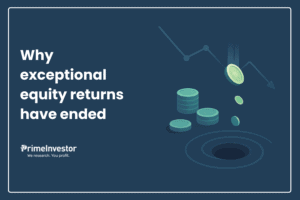New fund offers come with plenty of promise. And when it is a close-ended thematic fund, the fund presentations make you feel that there is no better time than now to invest in the theme.
But when it is time to deliver on the promise of the NFO when the fund matures, what you see is yet another similar offer, with a similar theme, with a similar ‘timing’ story. Why? Because there were no returns.

HDFC Housing Opportunities Fund, a closed ended thematic fund, was launched in December 2017. It sought to invest in housing and all other allied sectors including financing as the theme looked attractive then. The fund has a mandate to invest at least 80% in its primary theme and up to 20% outside its stated theme.
The fund delivered -2.8% (annualized) since its launch to date. Similar period returns for the Nifty 500 TRI was 7.2% annualized.
The fund will now convert into an open-ended scheme effective January 19, 2021. If you hold the scheme, you have a window to exit between December 18, 2020 and January 18, 2021 if you do not wish to stay invested. Not acting means your fund will automatically become open-ended and you can still redeem any time (exit load is applicable only for new investors).
What should you do?
We think you should exit HDFC Housing opportunities fund and invest in diversified funds with a track record or invest in passive funds – depending on your investing philosophy. This recommendation is not because we think housing and allied sectors don’t hold promise. We think they do, especially in sectors such as cement or housing finance. We suggest an exit for three reasons:
- One, we think these themes can be played by diversified funds. A thematic fund exclusively based on highly volatile and cyclical sectors can have negative outcomes if they do not play out well. This is evident in the last 3 years of this fund’s performance. We would be far more comfortable playing such themes tactically as part of any diversified fund.
- Two, the fund’s 3 years of performance does not inspire confidence in its ability to play themes well and it is hard to repose faith without conviction.
- Three, one cannot simply attribute poor performance to the theme not working. The fund’s benchmark (that the AMC created for the fund) has shown far better performance and a fund manager should seek to beat its benchmark.
Spotlight comment from subscriber:
“Ideally the default choice should be that investors exit and are auto-redeemed on maturity date, due to the fact they bought into the exit timeline.Those who choose to continue should actively exercise the choice to extend the term. However, here the terms are reversed – if you do not act you will be deemed to have agreed to extension.Apparently these investor unfriendly terms are explicitly allowed by SEBI regulation”
Prakash Rajagopalan
We will now elaborate the reasons that lend discomfort and dissuades us from suggesting a ‘hold’ in the fund.
#1 Lack of conviction
In its note to investors HDFC AMC has stated that it had to move to cash to create liquidity few months ahead of the maturity. Its reason was that it could not risk a situation of illiquidity in mid- & small-cap stocks.
However, if we look at the past equity allocation, HDFC Housing opportunities fund has had an average exposure of 82% (ignoring the first and last month of scheme launch and maturity, respectively) with a peak at only 88%. In other words, the fund held relatively high cash for an equity category fund.
True, it can hold anywhere between 80-100% in cash according to its mandate. But for a closed ended equity fund to not deploy the money fully can cost dearly. And this, the fund has seen in the last 3 years.
The fact that it took exposure to many a mid and small-cap stock has meant that it could not do so with conviction or without fear of liquidity. As a result, we feel the fund could never really deploy money efficiently. That it could have invested in many large caps instead and delivered would just be a post-performance analysis now.
#2 Underperformance despite diversification
HDFC Housing Opportunities was not a concentrated sector fund. It had an average 42% in banking and finance sectors with the rest in many sectors including cement, chemicals, consumer goods and oil and gas. Even considering the fact that the banking sector did underperform, a simple 60:40 blend of the Nifty 500 and Nifty Banking Index would have delivered 6.5% annualized – a significant outperformance over the fund’s actual return.
According to the AMC’s note, the correction in the mid-cap and small-cap space was a big reason for the fund’s underperformance. This is partly true. Besides, when mid and small-cap stocks did deliver, the fund was into its year of maturity and had to book out, losing the opportunity to narrow the underperformance.
The calendar year-wise performance below will tell you the following:
- 2018 was a washout year because of the correction in mid and small-cap categories.
- The fund could not recover from this in 2019 as the tide turned and engendered a new set of performers.
- Just as the fund tried to move up by February 2020, the correction, and the ensuing need to keep liquidity did not allow it to participate in the rally.
But the mid-and-small cap correction just part of the underperformance story. Here’s the full story.
One, some of its ‘value’ large-cap picks either didn’t work or the fund didn’t hold them sufficiently to push portfolio performance. That means general stock market movement is not the only blame – the fund’s missteps in stock picking is also a contributing factor to underperformance.
Two, the fund’s benchmark has managed to perform. The benchmark (India Housing & Allied Business Index with over 50 stocks) did this by having higher weights (compared to the fund) to key stocks such as HDFC, HDFC Bank and Asian Paints.
Three, large-and-midcap funds also beat HDFC Housing Opportunities. This category is a segment closer to this scheme in terms of its market cap make up; these funds have to necessarily hold at least 35% in mid-cap stocks and any mid-cap correction will hurt these funds.
So keep this in mind, if you were to continue to remain invested in this fund – the fund has to make up for the past underperformance and deliver additionally to make up for the opportunity lost in the last 3 years. Going by the benchmark, the theme itself has kept pace with markets. It’s the fund that hasn’t. And this therefore leaves us with lesser comfort on the fund’s ability to regain lost ground.
#3 To cost more
There is a high chance that those of you who invested in this fund did so through the regular plan as NFOs are most often sold through the distribution route than the direct route. If so, do take note of this:
- The regular plan TER was at 1.34% while direct plan was at 0.84% thus far. That roughly translates into about 0.5% for distribution/brokerage.
- The AMC has communicated to its brokers that it will be paying an additional trail of 0.59% (including GST) for assets converted to open-ended scheme.
Essentially, for those of you in the regular plan, there is going to be a steep increase in the fund cost. Paying higher cost for a fund that has not performed for you is not a great idea.






22 thoughts on “Should you hold or exit HDFC Housing Opportunities Fund?”
Qudos Vidya for such nice elaboration. WOuld not have come to know in a plain reading of the AMC note. A great saviour article, timely given. Pl. keep it up for all closed ended schemes, as most of the close-ended schemes are maturing starting from Jan,2021, to keep a holistic view on roll-over or otherwise.
Again big thnx & thumbs-up to you
HEllo sir, thanks. Will do. rgds Vidya
Comments are closed.